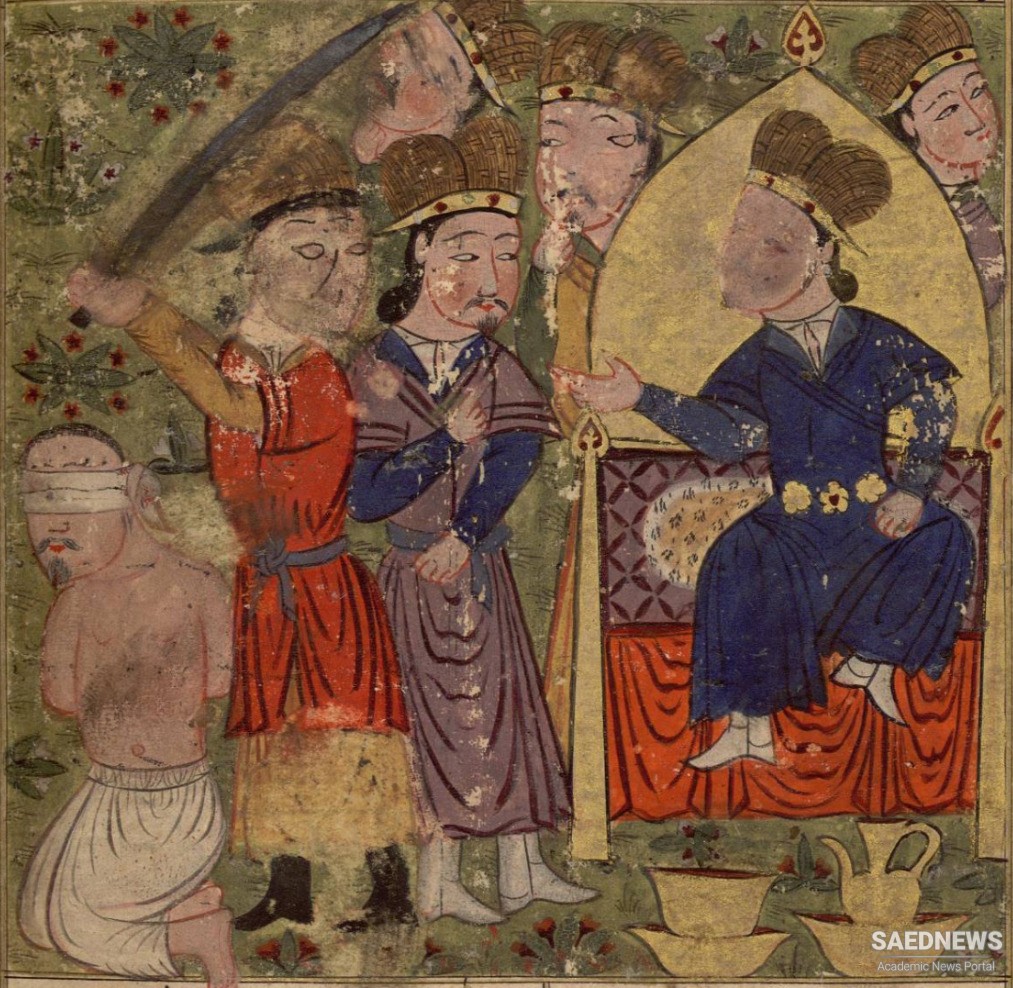Upon his conversion, the diplomatic exchanges were interrupted for a while, but did not end completely as with the Eastern Mongols, who no longer sent High Commissioners from China. Ghazan’s openness towards Christians, and his expedition against the Mamluks in 1299, reopened the military negotiations between the Persian Khanate and the Latin powers once again. The Il-Khan displayed his closeness to the Christians by taking the Catholicos Yahballaha with him on the expedition to Syria. After his military successes he sent envoys to the Western Sovereigns hoping for a new alliance. The Pope and the King of Aragon prepared their fleet, but they were not followed in this enterprise by any other Christian princes. Once again the attempt at an alliance failed, but the relations between the two parties resumed again. That year Ghazan took the Catholicos back with him to Azerbaijan. Yahballaha was not required to accompany Ghazan on the subsequent expeditions to Syria which took place in 1301 and 1302. He was confident that the Latin sovereigns regarded him henceforth as an ally.
Important diplomatic exchanges occurred in 1302. Ghazan sent his vizier Sa'd al-Din to the Pope for the negotiation. Sa'd al-Din, was probably deemed trustworthy for such mission because of his aversion to Sunnism; however, he still needed the blessing of the Il-Khanate’s Christians, whose recommendations mattered to the European ecclesiastics. Sa'd al-Din carried several letters from the bishops of Iran and Mesopotamia to the Pope. Ghazan also used the diverse influential Christians to promote his image as the ‘friend of Christianity’. King Hethum I was one of them. The Byzantine Emperor Andronicus II (1282-1328) also sent an ambassador to Ghazan, offering him the hand of one his daughters in marriage and seeking the Il-Khan’s protection against neighbouring hostile Turks.
Upon the death of Ghazan in 1304, Yahballaha must have felt insecure, and sought external protection. He wrote to the new Pope Benedict XI, accepting his proposition for union with the Roman Church. However, he mentioned that the task would be very difficult as he needed the approbation of his suffragans. It is interesting that the Jacobite Bishop, Denys, had already yielded to Pope Nicolas IV ’s exhortation for Uniat Status in 1291, the year the non-Muslims were afflicted with a new crisis following the execution of the Jewish Grand Vizier, Sa'd al-Dawla. As we saw, the Jacobites had been reduced to a very small community by that time. Therefore, Denys was probably hoping to save the remnants of the Jacobite Church by acquiring the Pope’s support.
Uljaytu’s lack of consideration towards Christians had damaged the relations between Persia and Europe. Uljaytu (1304-1316) continued to send letters, but the Pope and the kings of France and England no longer showed the Mongol sovereign any enthusiasm. King Edward II responded to his letter in 1307, saying that the distance between his Kingdom and the Levant made any cooperation impossible. The Pope responded in 1308 that he would write to the Il-Khan whenever a decision was planned for the invasion of the Holy Land. Iran vanished from European literary works, and missionary activities declined, leaving only the commercial activities of the Italian traders.


 An Outline of Persia's Foreign Policy in Early Nineteenth Century
An Outline of Persia's Foreign Policy in Early Nineteenth Century














































